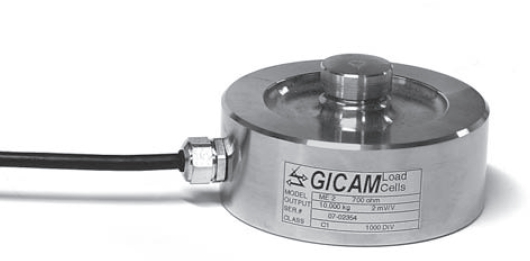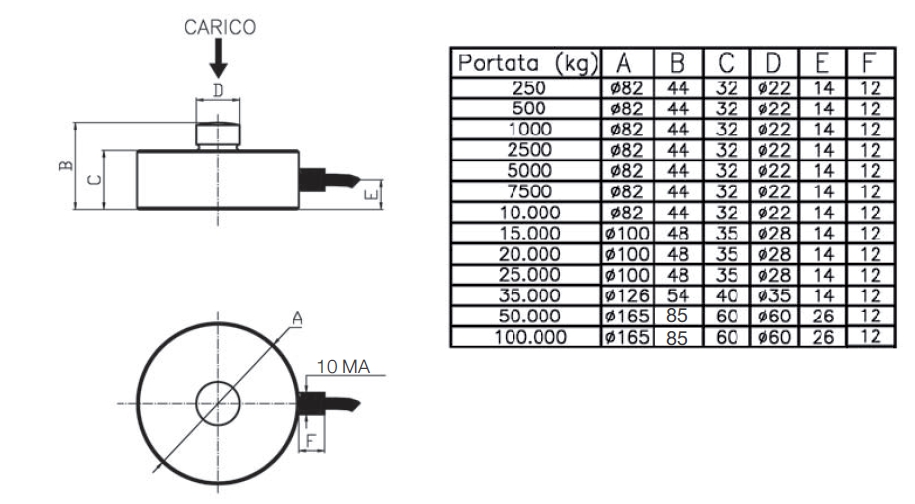Druck kraft Wägezelle und Druckkraftsensor zur Messung von Plattformen, Silos, Trichter usw.
Druckkraft-wägezelle
Auf Anfrage mit ATEX oder IECEx Zertifikat
![]() Zur Vergrößerung auf das Bild klicken
Zur Vergrößerung auf das Bild klicken





| Material | Edelstahl |
| Nennlast | 250, 500, 1000, 2500, 5000, 7500, 10000, 15000, 20000, 25000, 35000, 50000, 100000 kg |
| Grenzlast | 150 % F.S. |
| Bruchlast | 300 % F.S. |
| Maximale Querlast | 50 % F.S. |
| Dynamische Belastungsgrenze | 50 % F.S. |
| Speisespannung | Vcc 15 Max |
| Ausgangssignal | 2 mV/V |
| Ausgangstoleranz | 0,1 % F.S. |
| Nulltoleranz | 1 % F.S. |
| Linearität | 0,03 % F.S. |
| Hysterese | 0,03 % F.S. |
| Wiederholbarkeit | 0,03 % F.S. |
| Eingangswiderstand | 700-710 ohm |
| Ausgangswiderstand | 700-705 ohm |
| Isolationswiderstand | >= 2000 Mohm |
| Kriechfehler (30 Minuten) | 0,03 % F.S. |
| Thermische Kompensation | -10 / +40°C (14 / +104°F) |
| Betriebstemperatur | -20 / +70°C (-4 / +158°F) |
| Temperaturabweichung Nullpunkt | 0,003 % F.S. / °C |
| Temperaturabweichung Endwert | 0,002 % F.S. / °C |
| Schutzklasse | IP 68 |
| Standard Kabellänge | 5 m – 4 x 0,25 (Abschirmung nicht mit dem Gehäuse der Wägezelle verbunden) |
| Typ | GESCHIRMTES KABEL 4C R5 PUR 4X0,25 |
| Länge | 5 m (Bildschirm nicht mit dem Körper der Wägezelle verbunden) |
| Rot | + IN |
| Schwarz | - IN |
| Grün | + OUT |
| Weiß | - OUT |
General precautions to be followed in the installation and assembly of load cells: